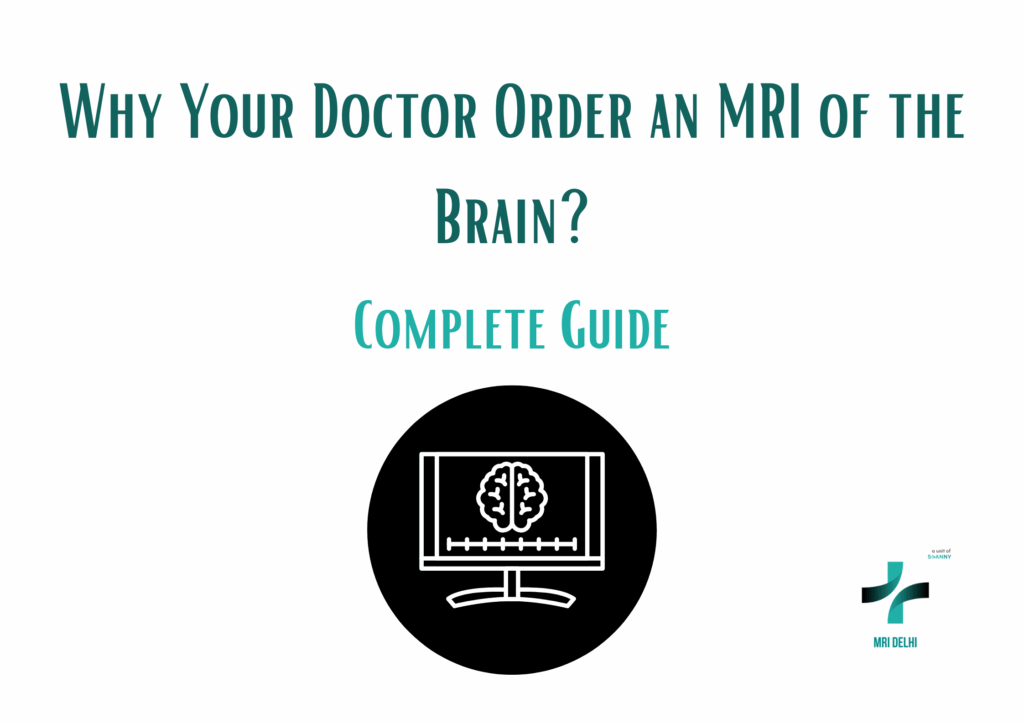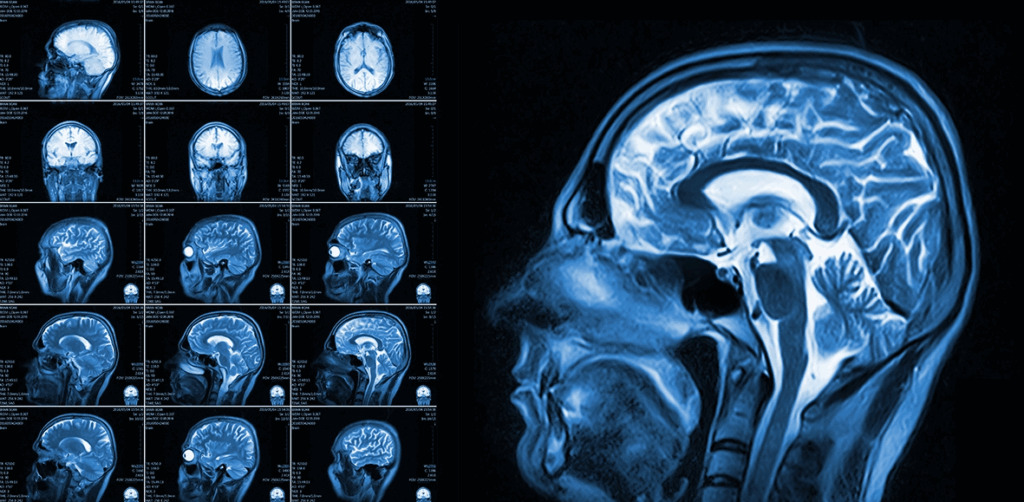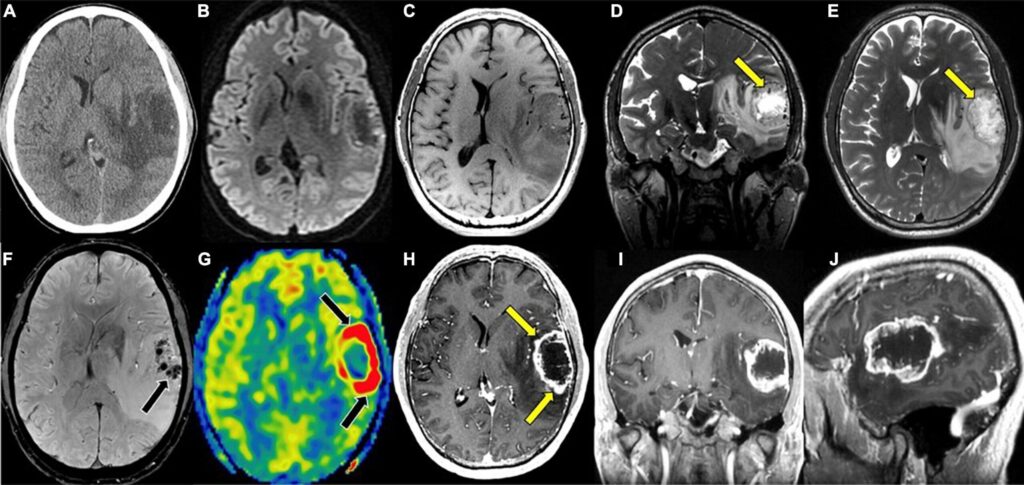Getting told you need a brain MRI can spark immediate worry. Your mind races – why does my doctor want pictures of my brain? Is something seriously wrong? The truth is, doctors order brain MRIs for many reasons, and most don’t involve life-threatening conditions.

This imaging test has become a standard diagnostic tool that helps physicians see what’s happening inside your skull with remarkable clarity.
When Persistent Headaches Need Investigation
Not every headache warrants an MRI. We all get occasional head pain from stress, dehydration, or too little sleep. But certain headache patterns raise red flags for doctors. If you’ve been experiencing the worst headache of your life, or if your usual headache pattern suddenly changes, your physician will want a closer look.
Migraines that don’t respond to treatment might prompt an MRI order. Sometimes what seems like a migraine could actually be something else – a structural abnormality, a tumor, or vascular issues. The scan helps rule out these possibilities so your doctor can treat you appropriately.
Morning headaches that wake you up or get worse when you lie down concern doctors too. This pattern can indicate increased pressure inside the skull, which needs immediate attention. An MRI reveals whether tumors, fluid buildup, or other issues are causing this pressure.
Unexplained Neurological Symptoms
Your brain controls everything from movement to memory. When something goes wrong with how your body functions, a brain MRI often provides answers. Sudden weakness on one side of your body, unexplained numbness, or coordination problems all justify scanning your brain.
Vision changes like double vision, blind spots, or sudden vision loss can stem from brain issues. The optic nerves connect directly to your brain, and problems along this pathway show up on MRI images. Doctors can spot inflammation, tumors pressing on nerves, or blood vessel abnormalities affecting your sight.
Speech difficulties, confusion, or memory problems that come on suddenly or worsen rapidly need investigation. These symptoms might indicate stroke, bleeding in the brain, or rapidly growing lesions. An MRI can detect these conditions within hours of symptom onset, which matters enormously for treatment timing.
Seizures and Epilepsy Evaluation
If you’ve had your first seizure, expect your doctor to order a brain MRI. Seizures happen when electrical activity in the brain goes haywire, and many conditions can trigger this. Structural abnormalities, scarring from old injuries, tumors, or vascular malformations all potentially cause seizures.

For people with known epilepsy, MRIs help doctors locate exactly where seizures originate. This information becomes crucial if medication doesn’t control the seizures and surgery might help. The scan maps your brain’s anatomy in detail, showing areas of abnormal tissue that could be generating seizure activity.
Stroke Evaluation and Prevention
Time equals brain cells when it comes to strokes. If you arrive at an emergency room with stroke symptoms, you’ll likely get a brain MRI or CT scan within minutes. The images immediately show doctors if you’re having a stroke and what type – blocked blood vessel or bleeding.
But MRIs also help prevent future strokes. If you’ve had a mini-stroke (transient ischemic attack), your doctor will order an MRI to look for areas of old damage and assess your blood vessels. Finding narrow or blocked arteries allows doctors to start preventive treatment before a major stroke occurs.
Multiple Sclerosis and Autoimmune Conditions
Multiple sclerosis creates characteristic patches of damage in the brain and spinal cord. These lesions light up clearly on MRI images, making the scan invaluable for diagnosis. If you’re experiencing symptoms like fatigue, numbness, vision problems, and balance issues, your doctor might suspect MS and order an MRI to look for telltale signs.
Other autoimmune conditions affecting the brain also show up on MRI. Inflammation of blood vessels, immune system attacks on brain tissue, and related complications all create visible changes that scans can detect.
Hearing Loss and Balance Problems
Sudden hearing loss in one ear, especially when accompanied by dizziness or ringing, often triggers an MRI order. Acoustic neuromas – benign tumors growing on the hearing nerve – cause these exact symptoms. Catching these tumors early makes treatment simpler and more successful.
Persistent vertigo or balance problems might also warrant brain imaging. The inner ear structures responsible for balance connect closely with brain regions. Problems in either location can cause dizziness, and an MRI helps pinpoint the source.
Cognitive Decline and Dementia
When memory problems go beyond normal aging, doctors use MRIs to investigate. The scan can reveal shrinkage in specific brain areas associated with Alzheimer’s disease. It also detects other causes of cognitive decline like small strokes, tumors, or normal pressure hydrocephalus – a condition where excess fluid builds up in the brain.

These scans don’t diagnose dementia by themselves, but they provide crucial pieces of the diagnostic puzzle. They also rule out treatable causes of memory problems, which matters enormously for patients and families.
Monitoring Known Conditions
If you already have a diagnosed brain condition, periodic MRIs track how it’s progressing or responding to treatment. Brain tumor patients get regular scans to check if tumors are growing, shrinking, or staying stable. People with aneurysms need monitoring to see if the weak spots in their blood vessels are expanding.
MS patients typically get MRIs every year or two to check for new lesions and assess disease activity. These surveillance scans help doctors adjust medications and catch problems before symptoms worsen.
Trauma and Head Injuries
After significant head trauma, doctors often order MRIs even if CT scans look normal. MRIs detect subtle injuries that CT might miss – small bleeds, axonal injuries (damage to nerve fibers), and brain contusions. This becomes especially important if you’re experiencing ongoing symptoms weeks after an injury.
Concussion patients with prolonged symptoms might also get MRIs. While most concussions don’t show visible damage on scans, doctors want to rule out complications like bleeding or swelling that need different treatment approaches.
Infection Concerns
Brain infections, though rare, require quick diagnosis. Meningitis (infection of the membranes covering the brain), encephalitis (brain tissue infection), and brain abscesses all show characteristic patterns on MRI. If you have fever, severe headache, neck stiffness, and confusion, your doctor might order urgent imaging to check for these conditions.
HIV patients and people with weakened immune systems face higher risks of brain infections from organisms that don’t normally cause problems. MRIs help detect these opportunistic infections early when treatment works best.
Unexplained Symptoms in Children
Pediatric brain MRIs investigate developmental delays, learning difficulties, or behavioral changes that don’t have obvious explanations. Brain malformations present from birth sometimes don’t cause symptoms until childhood when developmental demands increase.
Children with unusually large or small heads, missed developmental milestones, or regression of previously acquired skills often need brain imaging. Early detection of problems allows for early intervention, which can dramatically improve outcomes.
FAQs
Does needing a brain MRI mean something is seriously wrong?
Not at all. Doctors order brain MRIs to investigate symptoms and often find nothing concerning. The scan is a tool to gather information, not a diagnosis itself. Many MRIs come back completely normal.

Will the MRI hurt?
No, MRI is painless. You’ll lie still while the machine takes pictures. The loudest part is the noise the machine makes – knocking and buzzing sounds that we can muffle with earplugs or headphones.
How long does a brain MRI take?
Most brain MRIs take 30-45 minutes. Some specialized scans might take an hour. You’ll need to stay very still during this time to get clear images.
Can I eat before a brain MRI?
Usually yes, unless your scan requires contrast dye and your facility has specific fasting requirements. Ask when you schedule your appointment about any preparation needed.
What if I’m claustrophobic?
Talk to your doctor about anti-anxiety medication before the scan. Some facilities also offer open MRI machines that feel less confining. Let the staff know about your concerns – they deal with anxious patients regularly and can help.
Will insurance cover a brain MRI?
Most insurance plans cover medically necessary MRIs ordered by your doctor. Check with your insurance company about pre-authorization requirements and out-of-pocket costs.
When will I get results?
Radiologists typically read MRIs within 24-48 hours. Your doctor will contact you to discuss the findings. In emergency situations, readings happen much faster.

Can MRI detect all brain problems?
MRI is extremely good at showing brain anatomy and many diseases, but no test catches everything. Some conditions need different tests like PET scans or specific blood work for diagnosis.
Is MRI safe?
Yes, MRI uses magnetic fields and radio waves – no radiation. However, the strong magnet means you can’t have the scan if you have certain metal implants like pacemakers. Always tell your doctor about any metal in your body.
Do I need someone to drive me home?
Not usually, unless you’ve taken sedation medication for anxiety. If you took anti-anxiety medication before the scan, you’ll need someone else to drive you.
What happens if they find something on my MRI?
Your doctor will discuss any findings with you and explain what they mean. Many findings are minor and don’t require treatment. If treatment is needed, your doctor will discuss your options and next steps.
Can I get a copy of my MRI images?
Yes, you’re entitled to copies of your medical records including MRI images. Most facilities provide them on a CD or through online patient portals.
Moving Forward With Confidence
A brain MRI recommendation doesn’t mean you should panic. Think of it as your doctor being thorough about your health. The scan gives physicians a detailed look at what’s happening, which often brings peace of mind when results come back normal.
And when the scan does find something, catching it early improves treatment outcomes. Don’t let anxiety delay the test – the sooner you complete it, the sooner you get answers and can move forward with the right care.
